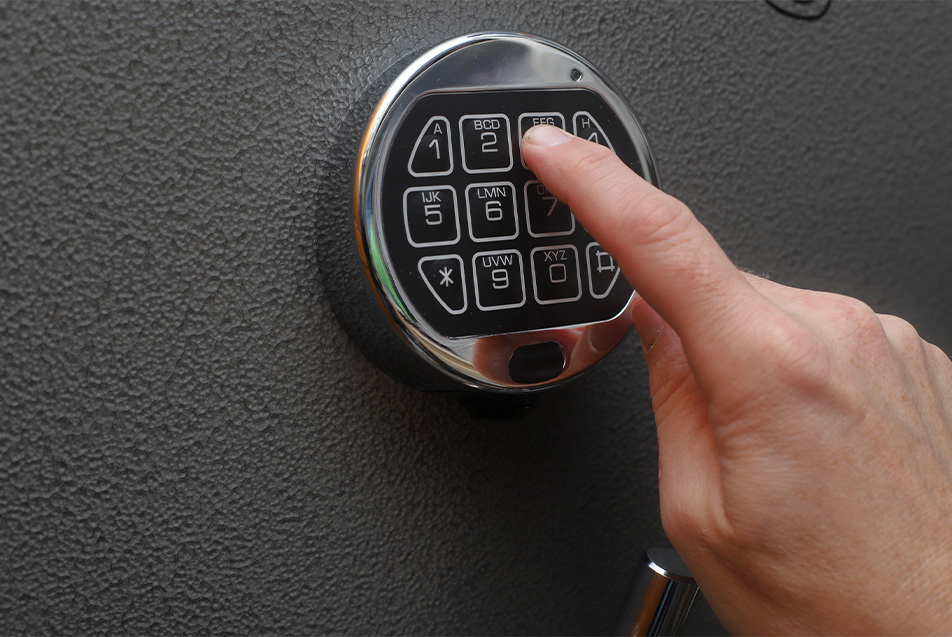
Each year in the United States, nearly 350 children ages 17 and under gain access to a firearm and unintentionally shoot themselves or someone else. [1] Sadly, these numbers have only risen in the last year and a half, coinciding with COVID-19. With children spending more and more time at home, especially during the pandemic, the risks of gun violence have grown, making it even more critical that families store their firearms securely. Tony GiaQuinta, MD, PPG – Pediatrics, shines a light on this tragic issue while discussing the Be SMART campaign and sharing some sound strategies to help prevent these unnecessary deaths.
Have you noticed an uptick in gun-related child deaths over the last 18 months?
Yes, we have seen an alarming increase in child deaths due to gun violence. As part of the Child Fatality Review Committee, our job is to look at the trends of child deaths to see if we can identify any patterns that might lead to possible interventions or efforts of the community to prevent these fatalities. Unfortunately, when we compared the 18 months before COVID-19 to the 18 months after the start of COVID-19, there was an alarming and devastating increase in deaths due to firearms.
Were you surprised by this increase in incidences?
We were very surprised by the rise in occurrences, and when broken down, we saw five deaths of children under the age of 18 due to firearms during the year and a half before COVID-19. Then, when we examined the 18 months after COVID-19 had begun, we observed an increase to nine child deaths. This jump is alarming because the number almost doubled in such a short time.
Is this a growing issue just in our area or all over the nation?
This issue became even more apparent when we saw national stories talking about a twofold rise in children killing themselves or dying due to unsecured firearms. This accounted for accidental deaths of children playing with guns and teen or young child suicides, meaning children who took their own lives with unsecured firearms. Eventually, when we analyzed our data, we could replicate that same information which meant this was happening in our backyards to our children. But no matter where it’s happening, the rise in cases has motivated us to solve the problem and prevent any more unnecessary deaths.
What steps have you taken toward prevention?
In the past 18 months, we’ve seen children left at home unsupervised more often due to school, sports and activity cancellations. We’ve also seen a decline in the mental health of our young children and teenagers. Likewise, there’s been a 64% rise in gun sales since COVID-19 started in 2020. So, when we add all these factors together, it creates a perfect storm and highly toxic environment, leading to one moment where a child accidentally injures themselves or takes their own life.
In hopes of combating these perfect storm scenarios, pediatricians ask parents in the community to advocate the Be SMART campaign. The framework is a common-sense approach designed to help parents and adults normalize conversations about gun safety and take responsible actions to prevent child gun deaths and injuries. The Be SMART acronym stands for the following:
- Secure: Adults must ensure that all guns in the home and/or vehicle are safely secured with ammunition locked away in a separate location.
- Model: Parents, caregivers and adults must model responsible, safe behavior around guns and practice firearm safety techniques.
- Ask: Parents and caregivers must be proactive in asking appropriate questions about the presence of unsecured guns in other homes.
- Recognize: We must all take a moment to recognize the role of guns in suicide and realize that there is an increased risk if there are firearms in the home.
- Tell: Children mustn’t be afraid to tell their peers to be SMART.
Another part of this initiative was connecting key community players to help prevent these needless deaths. We know that sometimes access to affordable gun locks can be a barrier to keeping guns safe and out of the hands of children. That’s why we partnered with Parkview Health and the Fort Wayne Police Department to offer free gun locks to families, ensuring that everyone is consistent in keeping guns secured and safely stored.
What are some signs of poor mental health in a child?
Pediatricians recommend parents, caregivers and families watch for signs of depression in their children. They could include but are not limited to the following:
- A poor self-esteem
- A loss of interest or pleasure in things they enjoy
- A decline in academic performance
- Not feeling well
- Sleeping more
- Less energy
All these things could be a sign that your child's mental health has been suffering. If that's the case, please call your pediatrician or primary care provider. They can connect your child with a therapist or other appropriate mental health resources. We are here to help.
What can parents do to help?
We ask that people look at gun safety, not as anti-gun or anti-firearm, but rather pro-safety. For us, that means we’re asking families to model good behavior by safely securing and storing their firearms in their homes or vehicles. In doing so, we are keeping our children and communities safe.
Sources
[1] Be SMART



